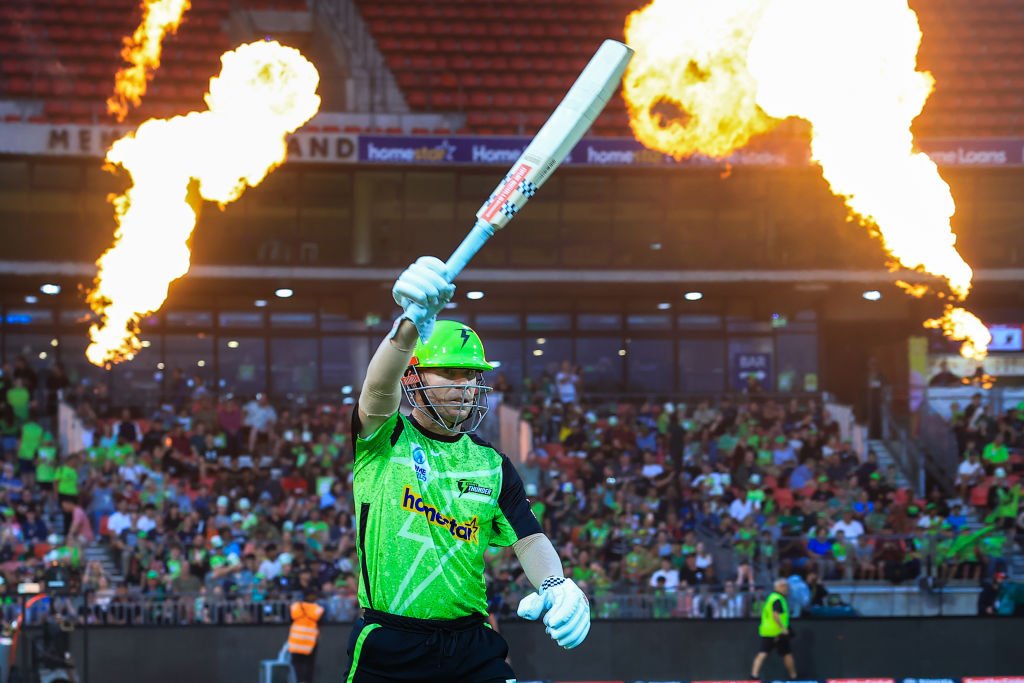
In a crucial Big Bash League (BBL) knockout match against the Melbourne Stars, Sydney Thunder’s captain, David Warner, faced a setback by being dismissed for a second-ball duck. The incident occurred at ENGIE Stadium, where Warner was caught by Marcus Stoinis off Tom Curran’s delivery in the opening over.
Warner’s early exit marked a challenging start for the Thunder, who were sent in to bat first after losing the bat flip. Following his dismissal, the team faced further hurdles, including a weather-induced interruption due to lightning and thunder, leading to a reduction in overs. Despite these challenges, the Thunder managed to post a competitive total, thanks to contributions from middle-order batsmen.
The Melbourne Stars, led by Glenn Maxwell, capitalized on the early breakthroughs and the revised match conditions. Their disciplined bowling and strategic field placements restricted the Thunder’s scoring opportunities, setting a manageable target for their chase. The Stars’ innings commenced steadily, with key partnerships anchoring their pursuit of the target.
This match highlighted the unpredictable nature of T20 cricket, where early dismissals and external factors like weather can significantly influence the game’s outcome. For David Warner and the Sydney Thunder, this experience underscores the importance of adaptability and resilience in high-stakes matches. As the BBL season progresses, teams will need to strategize effectively to navigate such challenges and advance in the tournament.
David Warner’s dismissal for a duck in such a pivotal match will undoubtedly be a moment he reflects on deeply. Known for his aggressive starts and ability to dominate in powerplays, Warner’s failure to make an impact left the Thunder vulnerable early on. This performance also raises questions about consistency in high-pressure games, especially as Warner continues to balance his BBL commitments with his international career.

